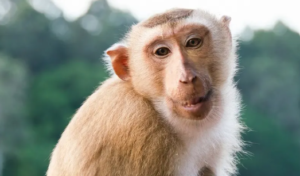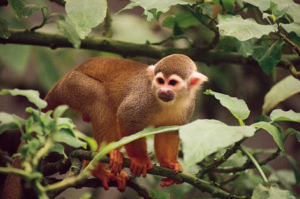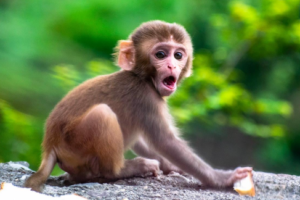Monkeys are fascinating creatures that often capture the curiosity of animal lovers. Their intelligence, playful nature, and human-like characteristics make them an appealing choice for those considering exotic pets. However, owning a monkey is a serious commitment that comes with significant responsibilities—and costs. This comprehensive guide explores the financial, legal, and ethical aspects of owning a monkey in 2025, and let you know what is monkey cost.
Initial Purchase Price of a Monkey

The cost of purchasing a monkey varies greatly depending on the species, age, breeder reputation, and availability. Below is a breakdown of popular monkey species and their average market prices in 2024:
Capuchin Monkey
Price: $5,000 – $10,000
Capuchins are small, intelligent, and highly trainable. Their appearances in movies and TV shows make them a sought-after exotic pet. However, they require intensive care and attention.
Marmoset Monkey
Price: $1,500 – $4,000
Commonly referred to as “pocket monkeys” due to their small size, marmosets are social animals that form strong bonds with their owners.
Spider Monkey
Price: $6,000 – $14,000
Known for their long limbs and prehensile tails, spider monkeys are agile and require significant space and stimulation to thrive.
Squirrel Monkey
Price: $2,000 – $8,000
These playful and curious monkeys are smaller in size, making them somewhat easier to handle than larger species.
Chimpanzee (technically not a monkey but often considered in exotic pet discussions)
Price: $60,000 – $70,000
Chimpanzees are highly intelligent but also incredibly strong and demanding. They require extensive care, large enclosures, and specialized veterinary attention.
Tamarin Monkey
Price: $3,000 – $7,000
Known for their striking appearances, such as the lion-like mane of the Golden Lion Tamarin, these monkeys are small and relatively manageable.
Ongoing Costs of Owning a Monkey
The initial purchase price is only a fraction of the total cost of owning a monkey. These animals have complex needs that require ongoing financial investment. Below is a detailed breakdown:
Housing and Enclosure
-
Initial Cost: $500 – $5,000
-
Annual Maintenance: $200 – $1,000
Monkeys need spacious, secure enclosures with climbing structures, hammocks, and toys. Outdoor enclosures with ample shade and protection from predators are ideal for larger species.
Diet and Nutrition
Monthly Cost: $50 – $200
A balanced diet includes fresh fruits, vegetables, monkey biscuits, and occasional protein sources like boiled eggs or insects. Supplements may also be needed to meet their nutritional requirements.
Veterinary Care
Annual Cost: $200 – $1,000 (routine care) or more for emergencies
Regular check-ups with an exotic animal vet are essential. Monkeys are susceptible to zoonotic diseases, so preventive care is critical.
Permits and Legal Requirements
Cost: $50 – $500 annually
Many regions require permits for owning exotic animals. Permit fees, inspections, and renewals contribute to the cost.
Training and Behavioral Support
Cost: $500 – $5,000 (initial training)
Monkeys need proper socialization and training to prevent destructive or aggressive behaviors. Professional trainers can help with this process.
Insurance
Annual Cost: $100 – $500
Liability insurance is often recommended for exotic pet owners to cover potential damages or injuries caused by the animal.
Factors Influencing the Cost of Monkeys

Several factors influence the overall cost of owning a monkey:
Species and Rarity
Rarer species or those with unique characteristics often cost more due to high demand and limited availability.
Age
Baby monkeys are typically more expensive because of their higher demand. Older monkeys may be more affordable but might require additional care.
Source
Purchasing from a reputable breeder ensures better health and documentation but is usually more expensive than adopting from a rescue organization.
Region
Prices and availability can vary by location due to local regulations and market conditions.
Additional Accessories
Items like leashes, harnesses, and toys contribute to the initial and ongoing costs.
Legal and Ethical Considerations

Owning a monkey comes with significant legal and ethical responsibilities. Here are the key points to consider:
Legal Restrictions
Many countries, states, and municipalities have strict regulations regarding exotic pet ownership. Ensure you research local laws to determine if owning a monkey is legal in your area.
Ethical Concerns
Monkeys are social animals that thrive in their natural habitats. Keeping them as pets can lead to isolation, stress, and behavioral issues.
Conservation Impact
The exotic pet trade can contribute to declining wild populations. Consider supporting conservation efforts instead of purchasing a monkey.
Alternatives to Owning a Monkey

If you’re captivated by monkeys but uncertain about the responsibilities, there are alternatives to explore:
Visit Sanctuaries
Sanctuaries and wildlife centers offer opportunities to observe and interact with monkeys without owning one.
Sponsor a Monkey
Support conservation programs by sponsoring a monkey in a sanctuary or rehabilitation center.
Volunteer
Volunteer at sanctuaries or zoos to work closely with monkeys and contribute to their care.
Tips for Potential Monkey Owners
Research Extensively
Learn about the specific species you’re interested in to understand their needs and behaviors.
Consult Experts
Speak with exotic pet veterinarians, trainers, and existing monkey owners to gain insights.
Prepare Financially
Ensure you have a stable income to cover the initial and ongoing costs of care.
Plan for the Long-Term
Monkeys can live 20-40 years, depending on the species. Consider this long-term commitment before purchasing one.
Conclusion
Owning a monkey is a rewarding yet challenging experience that requires significant time, effort, and financial resources. From the initial purchase price to ongoing care expenses, understanding the full scope of responsibility is crucial. If you’re ready to meet these challenges and provide a loving home, a monkey can become a fascinating and lifelong companion.
This 2024 price guide aims to equip you with all the necessary information to make an informed decision. However, always prioritize the well-being of the animal and consider alternatives like supporting conservation efforts if full-time ownership feels overwhelming.
